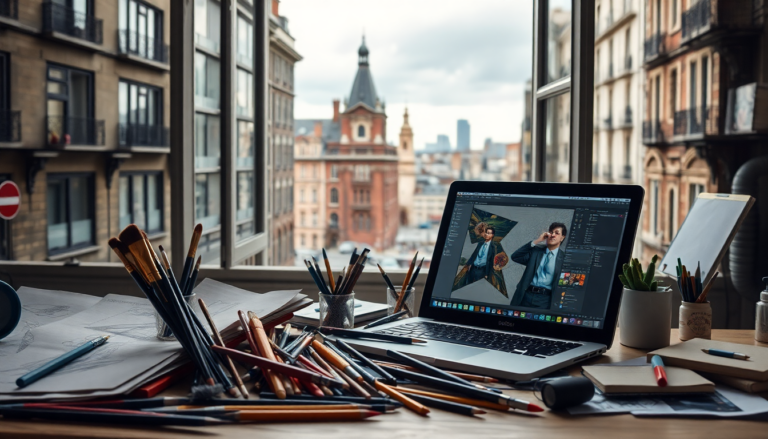Argomenti trattati
Imagine waking up to find your creative work being used without your permission, all in the name of technological progress. That’s the current reality many artists in the UK are grappling with. The government’s recent proposal to allow AI systems to train on copyrighted materials without explicit consent from creators has sparked a fierce debate. Critics argue this approach undermines the very foundation of artistic ownership and fair compensation.
Understanding the controversy
In a recent move that feels almost pulled from the pages of a dystopian novel, the UK government has introduced a bill that would permit AI models to utilize copyright-protected content unless the owner opts out. This means that unless artists actively prevent their work from being used, AI companies could freely harvest their creations. It’s a classic case of ‘opt-out’ versus ‘opt-in,’ and many believe it places an unfair burden on creators, who often lack the resources or knowledge to navigate such legal complexities.
Critics are rightfully concerned about how this could stifle creativity and innovation. After all, how would a musician feel knowing their songs could be sampled without their consent? Or an author discovering their narratives being fed into a machine learning algorithm, morphing their unique voice into something unrecognizable? As an artist myself, I can’t help but feel frustrated by the potential exploitation. I remember a time when artists had a say in how their work was used, and it feels like we’re stepping back into a less equitable era.
The artists’ response
Prominent figures from various creative fields, including musicians like Paul McCartney and authors like Jeanette Winterson, have rallied against this legislation. Their collective voice has resonated through protests and public statements, emphasizing the cultural significance of protecting creative work. The Royal Shakespeare Company even chimed in, expressing their dismay at the thought of allowing powerful tech corporations to profit from the creations of artists without fair compensation. It’s a rallying cry for the industry, one that echoes the sentiment: “We’ve worked hard for our art, and we deserve to be acknowledged and compensated for it.”
In a surprising turn during the House of Lords vote, an amendment proposed by crossbench peer Beeban Kidron was passed. This amendment mandates that AI companies disclose the copyrighted materials they utilize for training. While the government initially opposed this measure, the overwhelming support—272 votes to 125—demonstrates a significant pushback against the proposed legislation. Kidron articulated a powerful stance against the government’s plans, stating that it is not a rejection of technology, but rather a call for fairness and respect towards creators.
The implications for the future
As we delve deeper into this debate, it’s crucial to ponder what the future holds for creative industries in the face of advancing AI technologies. The UK government argues that by easing restrictions, they can foster technological innovation and keep pace with global competitors, particularly in the shadow of China’s rapid advancements. Yet, at what cost? The notion that we might sacrifice the rights of creators for the sake of progress feels fundamentally flawed.
Artists are not against technology; rather, they are advocating for a model that recognizes their contributions. This is not merely about dollars and cents; it’s about the integrity of creative expression. If AI continues to evolve without accountability, we may find ourselves in a world where original ideas are diluted, reshaped, or even erased altogether. And here’s a thought—what happens when these AIs start to create works of their own? Who owns that content? The questions multiply, and the answers remain elusive.
Looking to the horizon
As we navigate this complex landscape, it’s essential to stay informed and engaged. The outcome of this legislation will undoubtedly have ripple effects across various sectors, from gaming to literature. For tech enthusiasts and creators alike, this is a pivotal moment. If the government moves forward with its ‘opt-out’ approach, at least the newly passed amendment offers a glimmer of hope by ensuring greater transparency.
But will companies comply honestly? That remains to be seen. As many know, the tech industry has a history of exploiting loopholes. Therefore, it’s imperative for artists to remain vigilant and continue advocating for their rights. Personally, I believe that as creators, we must unite and push back against this tide of potential exploitation.
In an ever-evolving digital landscape, where the lines between creativity and technology blur, ensuring that creators are credited and compensated for their work is not merely a legal issue; it’s a cultural imperative. The future of art, music, literature, and gaming depends on it.

